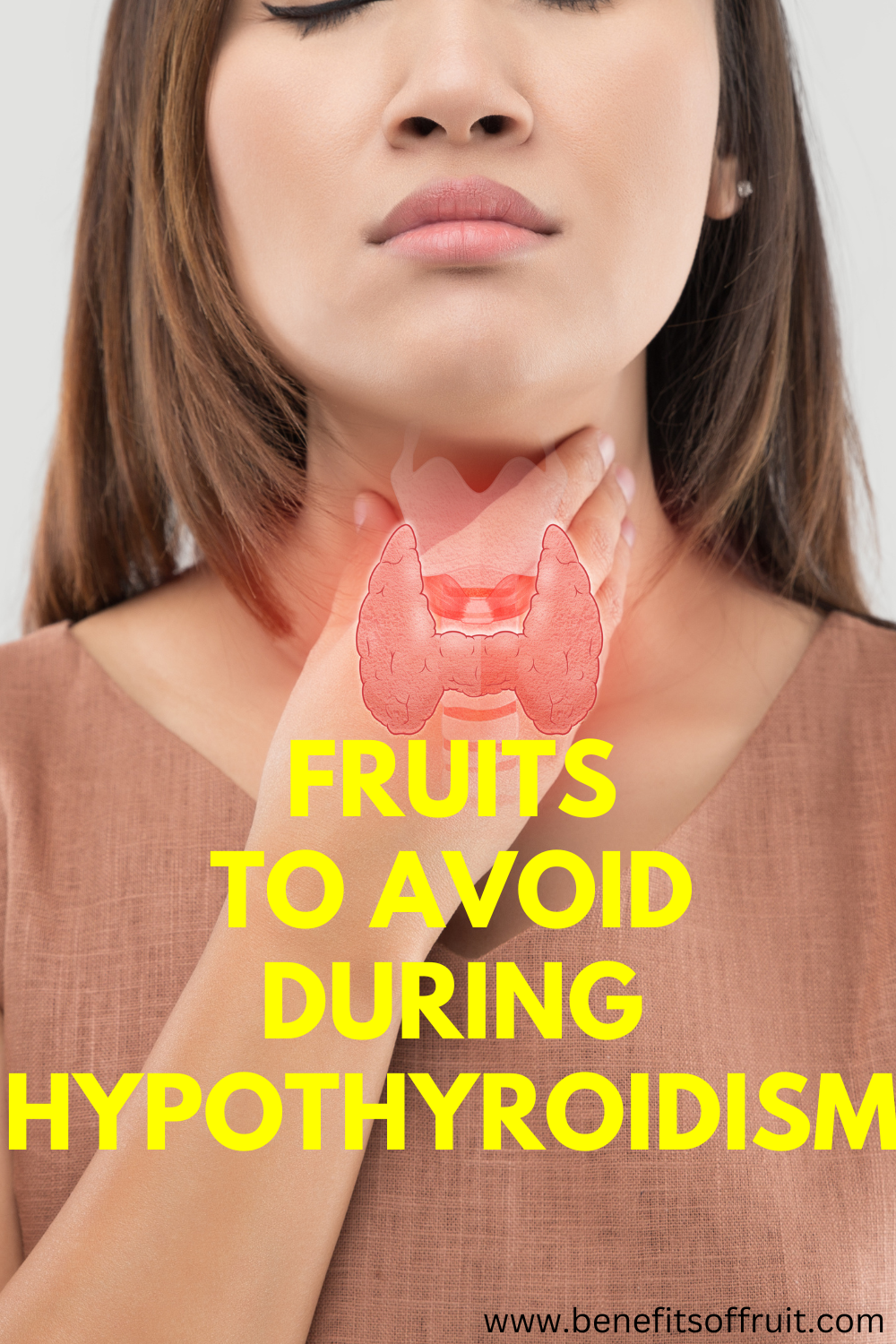Hypothyroidism, a condition characterized by an underactive thyroid gland, can significantly impact the body’s metabolism and overall well-being. The thyroid gland plays a crucial role in regulating metabolism through the production of thyroid hormones. When these hormones are in short supply, it can lead to various symptoms such as fatigue, weight gain, and cognitive impairment. Dietary management plays a key role in supporting thyroid function, and understanding which foods can either support or inhibit this gland is essential for those living with hypothyroidism.
Fruits, in particular, are often considered a healthy choice due to their natural vitamins, minerals, and fiber. However, not all fruits are beneficial for people with hypothyroidism. Some may contain compounds that interfere with thyroid function, while others could affect medication absorption or contribute to imbalances in blood sugar levels. Understanding which fruits to avoid and why they should be limited can be crucial for managing hypothyroidism effectively.
Understanding Hypothyroidism and Diet
Hypothyroidism occurs when the thyroid gland fails to produce sufficient levels of thyroid hormones, which are vital for maintaining the body’s metabolism. This deficiency can result from various factors, such as autoimmune disorders (e.g., Hashimoto’s thyroiditis), iodine deficiency, or certain medications. Proper nutrition plays a significant role in managing hypothyroidism, as it can influence thyroid function and the effectiveness of hormone replacement therapy.
Essential nutrients like iodine and selenium are critical for thyroid health. Iodine is a fundamental component of thyroid hormones, and a deficiency can exacerbate hypothyroidism. Selenium supports the conversion of the inactive thyroid hormone T4 into the active T3 form. Therefore, diets lacking these essential nutrients may worsen the condition. Conversely, some foods, including certain fruits, can inhibit thyroid function by blocking iodine absorption or interfering with hormone production.
Fruits To Avoid During Hypothyroidism
Goitrogenic Fruits
Goitrogens are substances that interfere with thyroid hormone production by inhibiting the uptake of iodine. This interference can lead to the enlargement of the thyroid gland, known as a goiter, and further impair hormone production. Although goitrogens are primarily found in cruciferous vegetables, certain fruits also contain these compounds, which can be problematic for people with hypothyroidism.
- Strawberries: These popular berries contain moderate levels of goitrogens that can interfere with iodine uptake by the thyroid gland. Although the occasional consumption of strawberries is unlikely to cause significant issues, individuals with severe hypothyroidism or iodine deficiency should be cautious about frequent consumption.
- Peaches: This juicy fruit contains goitrogens that can inhibit the production of thyroid hormones. For those with hypothyroidism, regular consumption of peaches could further lower thyroid hormone levels, exacerbating symptoms of fatigue and weight gain.
- Pears: Pears, like strawberries and peaches, also contain goitrogenic compounds. While they can be a healthy part of a balanced diet, their impact on iodine uptake could be a concern for people with compromised thyroid function.
High Glycemic Index Fruits
The glycemic index (GI) measures how quickly foods raise blood sugar levels. Fruits with a high GI can cause rapid spikes in blood sugar, leading to increased insulin production and subsequent energy crashes. For individuals with hypothyroidism, managing blood sugar levels is crucial as thyroid dysfunction can already impair metabolism and energy regulation.
- Pineapple: Pineapple has a high glycemic index due to its natural sugars. While rich in vitamins and antioxidants, pineapple can cause rapid blood sugar spikes, which may exacerbate energy swings in people with hypothyroidism.
- Watermelon: Another high-GI fruit, watermelon, can lead to significant fluctuations in blood sugar levels. This can result in sudden bursts of energy followed by crashes, which can worsen fatigue commonly experienced in hypothyroidism.
- Mango: Known for its sweetness, mangoes have a high sugar content that can impact blood sugar levels. In individuals with hypothyroidism, this can lead to weight gain and further aggravate symptoms like lethargy and sluggishness.
Citrus Fruits and Thyroid Medication
Citrus fruits are known for their vitamin C content and other health benefits. However, they can interfere with the absorption of thyroid medications, which are often the primary treatment for hypothyroidism. These medications require careful timing and specific conditions for optimal absorption, which citrus fruits can disrupt.
- Grapefruit: Grapefruit is infamous for its interactions with various medications, including thyroid hormone replacements. It can interfere with the metabolism of the medication, leading to reduced absorption and suboptimal hormone levels.
- Oranges: While oranges offer a high vitamin C content, they may also hinder the absorption of thyroid medications if consumed too closely to the time of taking the medication. This can reduce the medication’s effectiveness, leading to unstable thyroid hormone levels.
Fiber-Rich Fruits
Fiber is generally beneficial for overall health, aiding in digestion and promoting satiety. However, for individuals with hypothyroidism, excessive fiber intake can interfere with the absorption of thyroid medications, thereby impacting hormone levels.
- Apples: Apples are rich in fiber, which can bind to thyroid medication and prevent its absorption if consumed too closely together. While apples can still be part of a healthy diet, it’s best to consume them a few hours apart from thyroid medications.
- Bananas: Bananas, also high in fiber, can similarly interfere with the absorption of thyroid medication. This can lead to reduced efficacy of the medication and fluctuating hormone levels, which can worsen hypothyroidism symptoms.
Conclusion
Managing hypothyroidism through diet requires careful consideration of which foods can affect thyroid function and medication absorption. While fruits are generally considered healthy, certain types can interfere with iodine uptake, alter blood sugar levels, and disrupt thyroid medication absorption.
